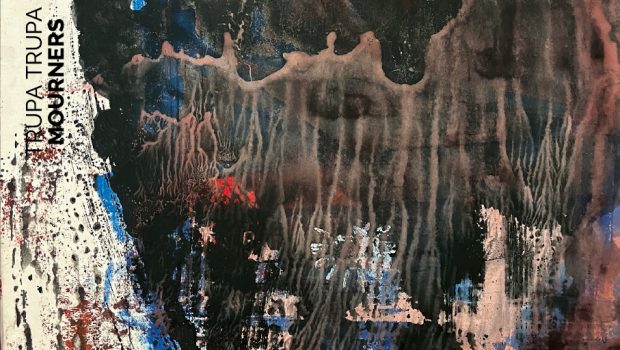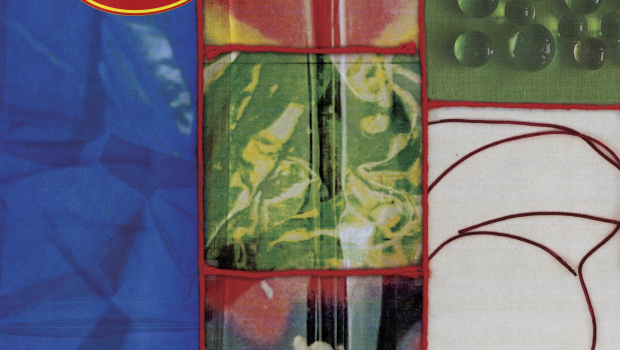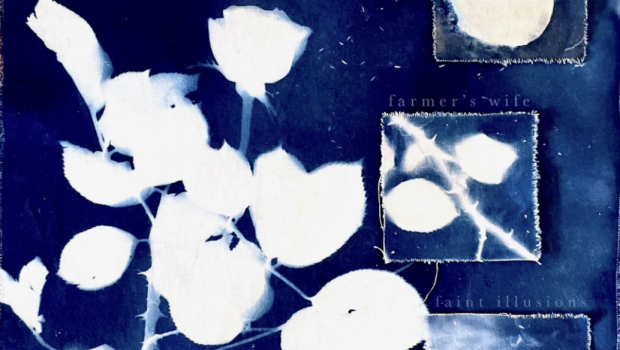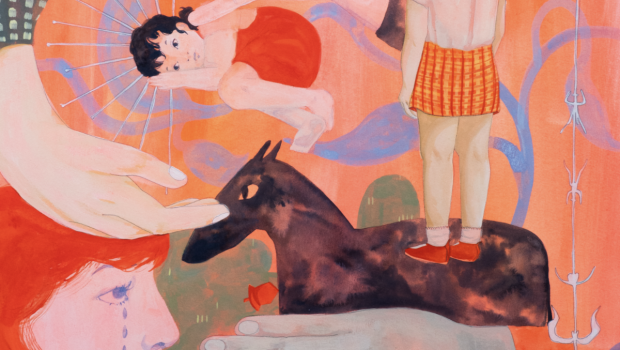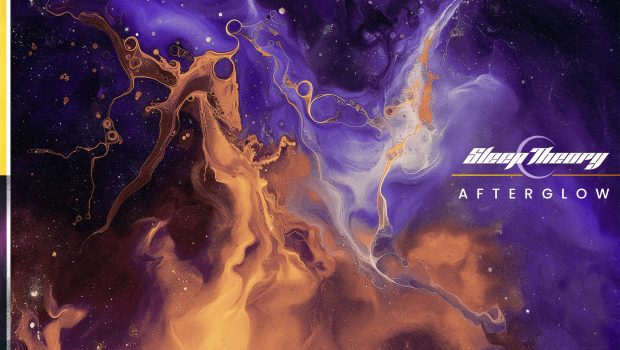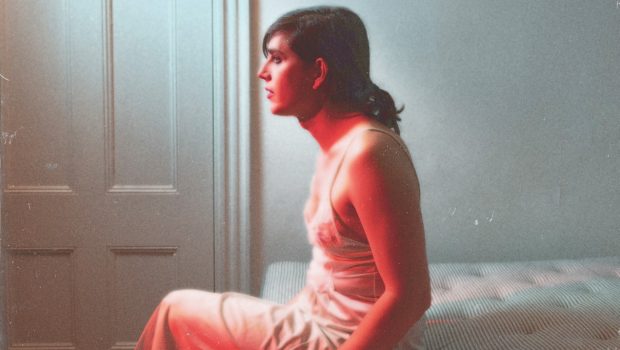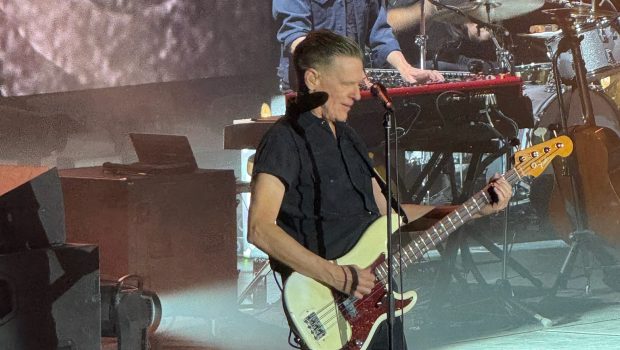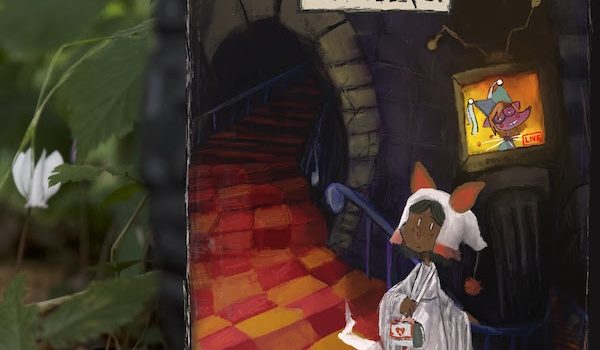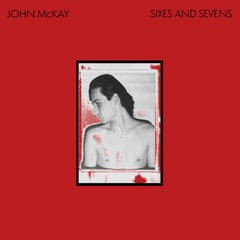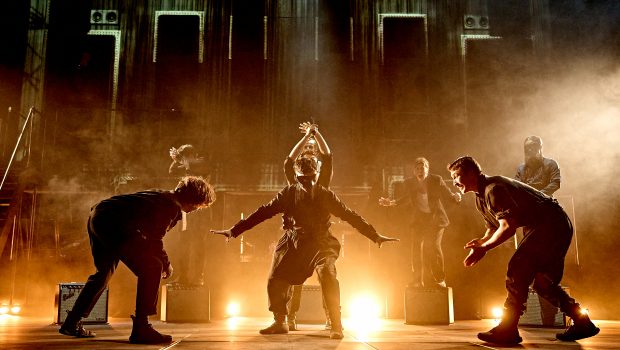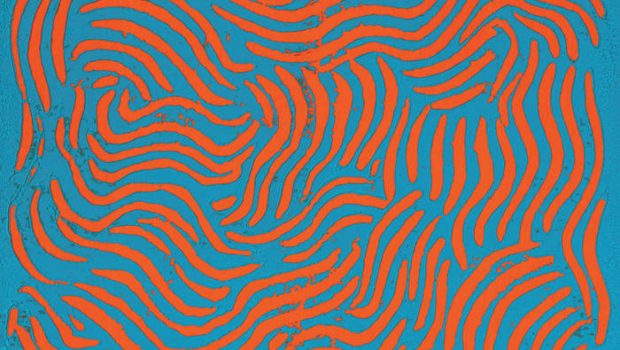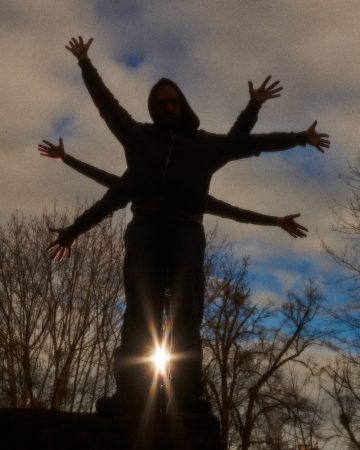
Trupa Trupa photo by Adam Plucinski
Sometimes, a group can be so shape shifting and in such a state of constant musical flux that it can be hard to initially get to grips with them. That can be the only explanation as to why it took me so long to appreciate Trupa Trupa. It has taken their latest and most dynamic release thus far, ‘Mourners’, to reel me in. It has a laser focus with its first track, Sister Ray’, leading the way with a seriously growling bassline, whipcrack drums and whirring synths. Now, I am hooked. Familiarising myself with their handful of albums released since 2011, I feel foolish for missing out until now. They are not a group that comfortably settles on one sound and is content to recycle it ad infinitum. Their catalogue has taken in post-punk, psych, Krautrock, shoegaze and dreampop. Individual songs can be concise or longer than the entire length of the five-track ‘Mourners’ EP. If they can be defined by anything, it would be dark guitars twinned with a thrilling density and intensity of sound together with an anti-fascist outlook best exemplified by the song ‘Never Forget’ from the album ‘Jolly Good Songs’ that deals with the Nazis’ actions in Poland.
A glance at their social media output indicates that Trupa Trupa are a band with a hinterland taking in lectures and activism. They consist of Grzegorz Kwiatkowski (vocals, guitar) who is also a published poet, Wojtek Juchniewicz (vocals, guitar), and Tomek Pawluczuk (drums). Kwiatkowski kindly replied to some questions that I emailed to him, starting with some gentle probing about his first experience of music.
Can you tell us about when you first heard music that inspired you?
I think it all began with classical music and music performed in church. Even now, I mostly listen to classical music. Beethoven’s late quartets are incredibly radical, and I would say even more radical than many things considered experimental in the alternative scene.
Have any of you been in bands before Trupa Trupa?
Wojtek and Tomek played in other bands for many years, but since joining Trupa Trupa, they have devoted themselves entirely to it.
How did you come together as a band?
Tomek and Wojtek were art students at the Academy of Art in Gdańsk, and I was a writer. They were close friends, and I was more of an outsider. We’ve always been very different people, and honestly, I still don’t fully understand how we ended up making music together. Our spiritual energies are quite distinct, but somehow, this unlikely combination became something exciting and meaningful. We became close friends and a real family, and we’ve continued to create music together, even though, in some ways, it feels like it shouldn’t have worked.
Grzegorz – I have read that you are also a poet. Do the other band members have other work or professions apart from being in the group?
Yes, I’m a poet, a scholar, and an activist. Wojtek is a painter and teaches art, and Tomek is a graphic designer. All of these parallel activities influence the band in a positive way. They radiate into the music and give it more layers. Somehow, everything we do outside the band supports the work we do within it.
Could you talk about the song writing process. Is there a common starting point? A riff, a lyric, some other idea or something more abstract?
The process is very intuitive and often begins with improvisation. We’re like sponges. Sometimes, someone plays something by accident during rehearsal, and we all follow that idea, which can turn into a complete song in just five minutes. Other times, one of us brings a concept and tries to convince the others to follow it. We’re very open to mistakes, accidents, and strange or imperfect sounds. That openness is one of our biggest strengths. We don’t work in a traditional professional way. We do things our own way, even though we don’t fully understand what that way is. There’s something mysterious and exciting about that.
How did you come to have music released by Glitterbeat? (It is one of my favourite labels which has introduced me to such a variety of music from around the world)
Glitterbeat is an amazing label, and we’re proud to be part of it. We love Chris Eckman and the whole team. It was a very natural collaboration. We see music in the same way, as something serious, meaningful, and spiritual.
The production on the ‘Mourners’ EP sounds bigger and more direct than your previous releases. Was this a deliberate plan? Do you try to approach each release differently?
We’re always open to working with new partners and exploring new directions. We approach the future with curiosity, not with big expectations, but with a kind of “let’s see what happens” attitude. Working with Nick was incredible. He’s a true genius, and we learned so much from him. We love the sound of the new album, but we also still appreciate the sound of our earlier work. We enjoy musical diversity, different genres, different textures, a polyphonic approach.
Can you tell us a bit about Gdansk as a place to live, work and create? (For someone of my age based in the UK, it is mainly associated with the Solidarity union in the 1980s)
Gdańsk is a powerful and inspiring city. It’s where World War II began, the Solidarity movement was born, and it’s the hometown of Lech Wałęsa and the philosopher Arthur Schopenhauer. It’s a city by the sea, surrounded by forests and lakes, and it radiates history, democratic values, and beauty. It’s an incredibly inspiring place for artists, a place filled with meaning and atmosphere. You should really come visit.
Is there much of a music scene there? If so, are there other bands we should be listening to?
Yes, there’s a vibrant music scene in Gdańsk. I’d recommend checking out bands like Sztylety and Kwiaty, but there are many other great artists around. You should definitely explore it and visit the city.
Could you tell us about your recent American tour. I believe that in addition to the band playing concerts, you were also doing a lecture tour.
Yes, I gave four lectures at UC Berkeley, UCLA, American University, and the University of San Francisco. I see it all as one connected experience. It may have been the most successful tour in our career. Our music has always leaned toward sadness and reflection, and now, as the US faces democratic crises, it resonates more strongly. The same goes for my lectures about fascism. They feel very relevant. I still have hope though. I come from Gdańsk, the city of Solidarity. I believe there will be mass protests in the US, and that things won’t go too far down a dark path.
I am interested in hearing about how you consider your music, poetry and activism to link together. Do you approach them in similar ways?
For me, it all comes from the same place. I see it as a memory art project. That’s my personal interpretation. Everything I do revolves around ethics, morality, and art, and that’s shaped by my background. My grandfather was imprisoned in the Stutthof concentration camp. My wife’s grandmother had to hide in the forest because she was Jewish. These histories have deeply affected me. The idea that an entire state can decide to destroy your life is terrifying. But my response is to refuse fear. I don’t want to live in fear.
Could you tell us more about your What About Exclusion workshop and your Yale Artist in Residency.
Both projects are part of the same broader idea. They’re about asking difficult questions rather than giving answers. What About Exclusion is a new series at Oxford University, and I’m one of the curators. At Yale, I’m working on an artistic analysis of Holocaust testimonies. I’m very lucky to be able to do this work, especially in such increasingly dark times.
Does now feel like both the most important and terrifying time to be making political art? I am thinking in particular about the US refusing entry recently to people who have been critical of the administration.
It is a real tragedy and horror, but I still believe democracy will win. It will just take time.
You have some dates in the UK and Ireland in May. How do you go about deciding on a set list? Does it change each night or do
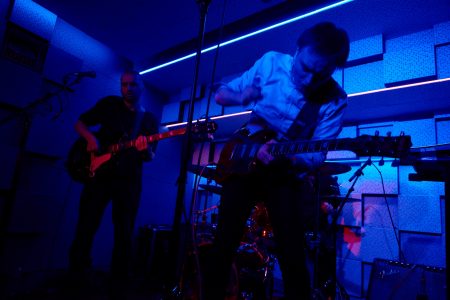
Trupa Trupa photo by Ron Baker Ashton
you prefer to have a settled choice of songs?
We constantly add new, unreleased songs to our setlists. We don’t wait for albums to be officially released. Most of the material we play is either new or very fresh.
What are your future plans and what is the best place for keeping up to date with Trupa Trupa?
We’re working on a new LP, and we’re also preparing a joint EP with the great California band Jjuujjuu. In the fall, there will be a major film featuring our music. It’s about Franz Kafka, but I can’t share more yet. We’re always working on something new. The best way to stay updated is through our social media and website.
This sounds highly intriguing. Trupa Trupa will be undertaking a short UK tour in May, starting with a session for Riley and Coe on BBC6 Music (21 May) who along with other station stalwarts like Iggy Pop and Mary Anne Hobbs have been tirelessly championing the group. This will be followed by:
22 May – Jericho Tavern, Oxford
23 May – Footsteps Festival, Oslo, London
24 May – Bearded Theory Festival, Walton-on-Trent
25 May – New Continental, Preston
Then on 7 June, they perform at In The Meadows, Dublin, Ireland.
